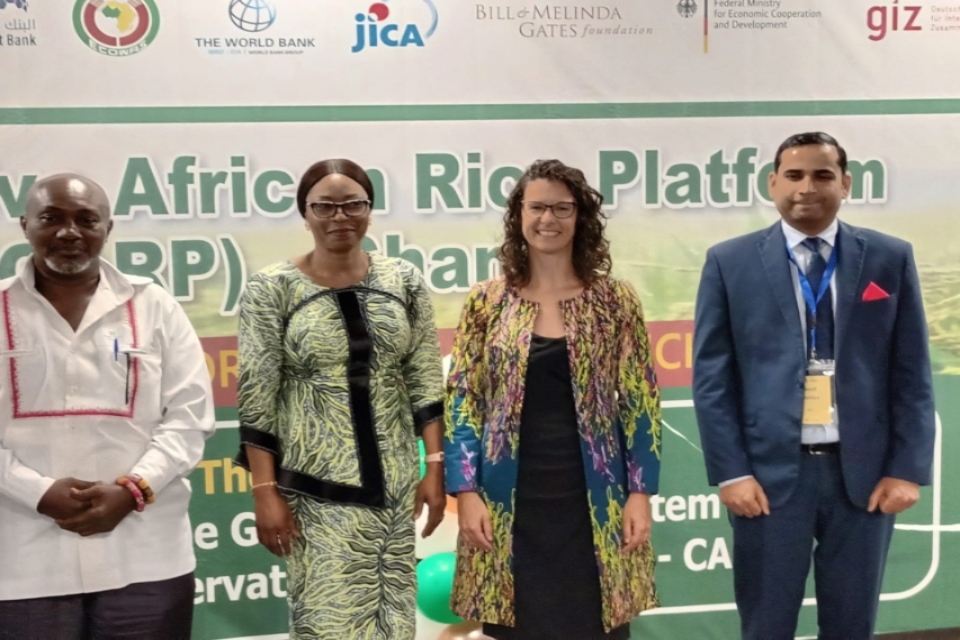In Ghana, COVID-19 and Russia’s invasion of Ukraine have exacerbated the challenges of climate change, including energy, financial and food security. UK, Ghana, ECOWASand many other partners are working together to ensure that Ghana plays its part in the West African region to produce more rice, facilitate trade and reduce costs for the consumer.
Under the Africa Food Trade and Resilience programme, the UK government, alongside strategic partners, is investing £450,000 to establish the ECOWAS Rice Observatory and its national branch, known as the “Ghana Competitive Africa Rice Platform”. This new public-private sector platform will identify and drive reforms aimed at increasing investments in the ECOWAS rice value chain.
This support to Ghana and other ECOWAS countries will:
- cut the £2.6 billion annual cost of importing rice into West Africa
- potentially create more than 385,000 new jobs in the rice value chain in West Africa
The British High Commissioner to Ghana, Harriet Thompson, said:
The numbers speak for themselves: there is so much potential to develop the rice sector here in Ghana and across West Africa. The ECOWAS The Rice Observatory will support the growth of the rice industry and increase trade and investment opportunities in the market.
At a time when many countries around the world are facing food insecurity due to Russia’s illegal war in Ukraine, I am confident that this project will strengthen the food system here in Ghana and across the region now and in the future. the future.
The CARP launched in Accra (November 1, 2022), at a ceremony presided over by its new President, Mr. Yaw Poku, alongside the Director General of the Ministry of Food and Agriculture, Patrick Robert Ankobiah, and the high- British Commissioner, as well as representatives of ECOWASthe German development agency, GIZand the Alliance for a Green Revolution in Africa.
The ERO provides a platform for rice stakeholders to understand demand and production patterns, seize trade, investment and reform opportunities, understand the impacts of climate change and work towards resilient food security in the future .
In addition to supporting the ERO, the UK is working with international partners to secure funding to respond to the global food crisis caused by climate change and COVID-19. Today, Russia’s illegal invasion of Ukraine is exacerbating existing economic fragility and food insecurity.
In October, British High Commissioner Harriet Thompson visited AgDevCo’s Babator Irrigated Farming Hub in the Savannah region of Ghana. Engaging 764,000 smallholder farmers and creating or sustaining 15,600 jobs on the continent, AgDevCo is a key investor in African agriculture, backed by investments from the UK government. Earlier this year, AgDevCo sold Ghana’s largest active irrigated farmland to regional multinational Oba Pack, after spending many years developing the site.











More Stories
Sri Lanka’s post-harvest losses in agricultural sector exceed Rs. 55 billion – – The island
SAU Vice-Chancellor emphasizes effective research in agricultural sector
Agriculture sector threatened by climate change, expert says – Pakistan